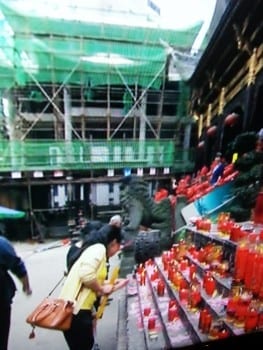 When I was working in export, I ran three agents – one based in Manila, one in Washington and one in Brussels. What was I after? Current knowledge. But knowledge always sits in frameworks – what kind of framework emerges from the news? Just reading about political hotspots doesn’t help people running businesses, and some speculations about the likely fallout from recent events are simply not imaginative enough.
When I was working in export, I ran three agents – one based in Manila, one in Washington and one in Brussels. What was I after? Current knowledge. But knowledge always sits in frameworks – what kind of framework emerges from the news? Just reading about political hotspots doesn’t help people running businesses, and some speculations about the likely fallout from recent events are simply not imaginative enough.
The world turns. Looking back at what has gone before – political risk in 2015.
In early 2014 we were looking at US military withdrawal from the Middle East – our own boys came home; military wives sang on television. Moving stuff.
In 2013, the US economy was on shutdown, if you recall – it shocked me somewhat. As the recovery continued, the USA started seeking reconciliation through diplomacy with Russia and nuclear negotiations with Iran. Today we can be excused for thinking what disengagement from the Middle East? The US-led campaign against Islamic State is going strong, and regional and global ‘players’ are fighting in what looks like an ongoing civil war in Iraq and Syria. Best avoided, just now I’d have said – but go to a neutral place and take a view – the UAE is a good start. We often stop over in places where we might do business – for a holiday.
One year on, the Russians’ aggression in the Ukraine has brought on Western sanctions; aggression in Ukraine and the price of oil collapsing are two key reasons why its economy isn’t doing so well. Fears over Russia’s economic state have made their citizens send their money abroad; $85 billion in 2014 is one estimate of the capital outflow. Energy projects which would have brought in money are on hold – how Russia navigates between an economic freefall and a war in the Ukraine will decide if any of that money is going back home any time soon. And yet, British goods, services and knowhow are much in demand in Russia. A briefing exploring just this phenomenon is being held in London. They will talk about what to do about sanctions.
At the same time as global oil prices continue to fall, promises of reform in India and Indonesia are saying – hey, invest here – we are going to do really well. We are reforming our markets, and relaxing our rules.
In Indonesia, recently elected President Joko Widodo increased the price of fuel subsidies by roughly a third, which investors are taking as a sign of his government’s commitment to economic reform – about a quarter of its budget was going on fuel subsidies. Widodo has also committed to resolving legal problems for investors, which would help to bring more foreign capital investment into the state. Joint ventures with a local firm to distribute your output works best, in this market. The statistics remain optimistic – Indonesia remains Southeast Asia’s largest economy with 240 million people, and GDP growth above 6.5% in 2011, when we were all struggling – it has strong domestic demand and rich natural resources. The UK-ASEAN business council has always been an up to date source of information.
The election of President Narendra Modi has encouraged renewed confidence in India’s economic future – he has also been travelling widely. Reforms being considered include a goods-and-services tax that would allow India to have a single internal market for the first time in its post independence history, and new laws will now commercial mining. Modi is actively encouraging foreign investment; he has spotted the likely benefits of economic partnerships with countries like China and the United States. If his promises are kept then Modi’s India looks like a reasonably good export target; again a local partner might be a good start to making inroads into this market. Get help from the UKTI to explore your options. A lot of it is free of charge. Get a feel for doing business in India – a lot of people seem to be convinced that this is the place to go.
Sometimes reformers don’t get the timing right, though. Did you know that since 1938 no foreign investors could invest in the oil sector in Mexico? Well that has changed now – last December it announced that foreign companies can now drill for oil on their turf. For the engineers on the ground I would worry about drug cartels and operational security, having been a project manager for projects in unstable environments – President Enrique Peña Nieto will have to make security his first priority if he wants his energy reforms to bear fruit. But, falling oil prices don’t help. Will we see more reforming action? Watch this space.
And which countries’ overall budgets have eased ?
Well, here is one simple bit of analysis anyone can do to see how last year’s framework has shifted. Oil prices have fallen by about 40%, and if you want to know where to look for money in the national and local business budgets, look at the countries which benefit most from this windfall – the top oil importers. If you are exporting to these countries then you are more likely to win business, because suddenly, they have money in their budgets, Their energy costs have practically halved! Here are the top 10 – USA, China, Japan, India, Korea, Germany, France, Spain, Singapore, Italy.
The most important thing to know about exporting is that it is essentially about people – women make fabulous exporters because we read what people want a bit better, I think. (Yes, that is biased) And the Government provide all kinds of incentives for those starting to export. Have a look – exporting makes for a very exciting life.

